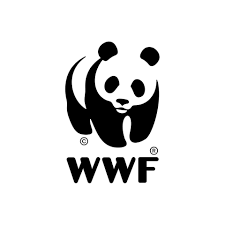Dear Reader,
I hope that you and your wonderful family are keeping safe as we fight the spread of the Corona Virus (COVID-19).

For the seventh consecutive year since 2013, Zambia commemorates yet another Financial Literacy Week (FLW) which began on 23rd to 27th March 2020. At a country level, the FLW focuses on creating awareness of financial services, products and financial practices ranging from creative ways to save, invest and digitally transact, ultimately tackling financial inclusion across the country. At a personal level, this is a reminder to ensure we adopt good money practices that will ultimately change our daily lifestyles.
With the 2020 theme being “Be Money Smart to Live a Better Life”, what changes should we anticipate in actualizing this theme? Unlike the past events, there will be no exhibitions taking place this week to help fight against the spread of COVID-19 which has brought the global market to a stand-still, exposing harsh realities that come with poor financial wellness. In view of this, all stakeholders have been encouraged by the Bankers Association of Zambia to share relevant information about being money smart via digital platforms and social media.
Following the launch of the National Financial Inclusion Strategy by the Government of Zambia in 2019 to increase financial inclusion from 59% to 80% in the formal sector and 38% to 70% in the informal sector by 2022, the financial industry strongly continues to drive this agenda with various stakeholders i.e. The Banks, Micro-Finance companies, Insurance & Pension houses, Regulators and FSD to ensure that Zambians have access to information to help them make money-smart choices to support the generation of wealth and financial freedom.
At a country level, it is no secret that most parts of the country are now more than ever being serviced through agency banking via Mobile Money booths and kiosks, an indication that financial inclusion through digital financial services is on the rise. The digital adoption rate by formal & urban areas has increased however only 24.8% of adults use commercial bank services and only 28.5% of adults use non-bank formal services i.e. digital platforms country-wide. How then can Zambia achieve its financial inclusion target by 2022 with a focus on the informal & rural areas and what are some of the ways in which this can be achieved?
- Mobile Money operators must be commended for making significant strides in supporting financial inclusion through the digital agenda, but the banks must increase their efforts to bank the unbanked digitally. In an era where banks strive to reduce operating costs while growing revenue by increasing their digital footprint, brick and mortar branches by banks is off their agenda. A solution to this is Agency banking by which banks extend their services through third-party engagement via agents/kiosks/booths to increase service/product accessibility and banks’ footprint across the country.
- Village banking is a system by which members of the group (mostly women) contribute money at agreed intervals and the money is kept by a selected trustee. However, there are a lot of risks as money is prone to loss, theft or even being burnt because it is kept in informal ways. A solution and opportunity for financial service providers like banks and insurance houses to create innovative products and services tailor-made programs for Village banking to benefit them and the customers. However, there is an urgent need to reduce the KYC requirements and make services such as attractive interest rates suitable for the Village banking members mostly comprised omen in the informal sector.
- Subsistence farmers in the 2018-2019 farming season in some provinces experienced drought and this exposed them to financial loss and risk. This then presents an opportunity for the insurance houses to up their efforts to educate the rural farmers on the need to ensure their produce in preparation for such eventualities. There is also a need for insurance firms to travel even to the far-flung areas and derive premium mechanisms in the form of farm produce as opposed to only focusing on paper money that may not be available in such areas.
At a personal level, because we at Financial Insight Zambia strongly advocate for financial wellbeing, here are four (4) tips to be money smart:
- Review spending habits
- Have an emergency account
- Consider insurance & increasing retirement contributions
- Engage a Financial Advisor for Savings & Investment Plans
In conclusion, financial inclusion is among the biggest hurdles in our journey to economic prosperity as a country however it remains a key necessity for Zambia. We are currently living in complex times and our activities throughout human history globally, have created a complex ecosystem on this planet we call home. COVID-19 is no exception. In such times, access to financial services and the ability to save, invest and hedge risks is important for every individual. It is not just the obligation of governments to help bring about financial inclusion, the participation of every Zambian is the answer.
Remember to stay home and stay safe. Together we can beat COVID-19.
Happy FLW!






